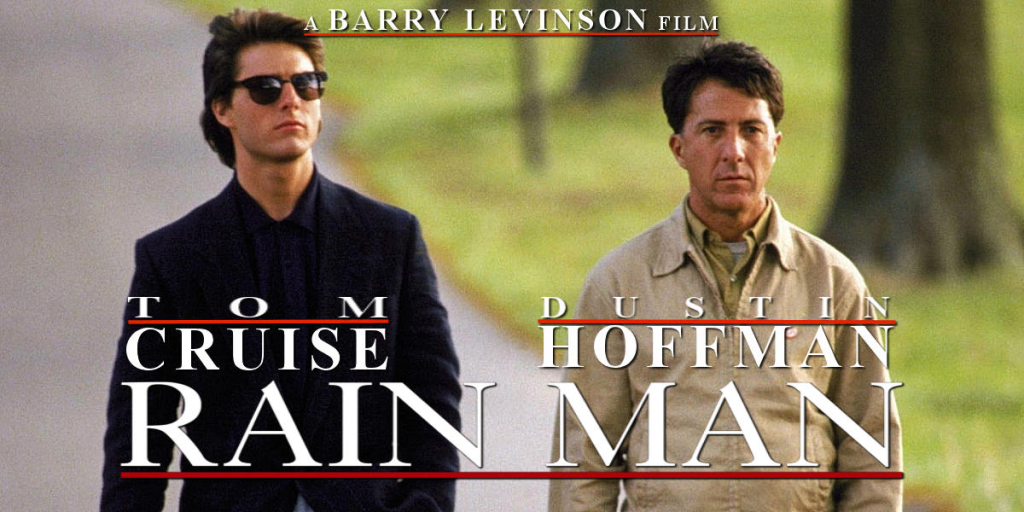Rain Man (1988)

Rain Man (1988), directed by Barry Levinson, is a deeply emotional and thought-provoking psychological drama that explores the relationship between two brothers. The film tells the story of Charlie Babbit, a selfish and narrow-minded young man, who discovers that his estranged brother, Raymond, is an autistic savant with extraordinary abilities. With powerful performances by Tom Cruise as Charlie and Dustin Hoffman as Raymond, Rain Man became a landmark film that explores themes of family, self-discovery, and the power of human connection.
Charlie Babbit is a businessman who is initially portrayed as self-centered and materialistic. His life takes an unexpected turn when he learns that his father, who had cut him out of his will, left all his fortune to Raymond, a brother Charlie never knew existed. Raymond, played by Dustin Hoffman, is an autistic savant who has an exceptional memory and can perform complex calculations but struggles with social interaction and daily life. Charlie, motivated by greed and a desire for financial gain, decides to take Raymond from the care facility where he has lived most of his life, hoping to use him to access the inheritance.
As the film progresses, Charlie embarks on a road trip with Raymond, during which he begins to realize the depth of his brother’s unique abilities. Raymond’s exceptional memory and talent for numbers astound Charlie, but he also begins to understand the emotional and psychological challenges Raymond faces in navigating the world. The road trip becomes a transformative journey for both brothers, as Charlie learns to see Raymond as more than just a means to an end. The film beautifully depicts Charlie’s gradual shift from selfishness to compassion, showing how the relationship between the two brothers evolves from one of initial exploitation to genuine care and understanding.

Rain Man also highlights the difficulties faced by those with autism and how society often misunderstands or overlooks their talents and challenges. Raymond’s behavior, such as his need for routine and his inability to connect emotionally with others, contrasts sharply with Charlie’s fast-paced, self-absorbed lifestyle. The film doesn’t offer easy solutions, but it brings attention to the complexities of living with autism and the importance of empathy and patience when interacting with individuals on the spectrum.

The performances of Tom Cruise and Dustin Hoffman are central to the film’s success. Hoffman’s portrayal of Raymond, an autistic savant, is both sensitive and powerful, earning him the Academy Award for Best Actor. Cruise’s portrayal of Charlie, the initially unsympathetic brother who undergoes a significant emotional transformation, is equally compelling. The chemistry between the two actors is palpable, making their relationship believable and heartwarming as it develops throughout the film.

In conclusion, Rain Man is a remarkable film that explores the themes of family, acceptance, and personal growth. Through its nuanced portrayal of autism and the evolving relationship between two brothers, it challenges audiences to reconsider their perceptions of disability and human connection. With exceptional performances and a compelling story, Rain Man remains an iconic and influential film, reminding us of the importance of empathy and understanding in building meaningful relationships.











